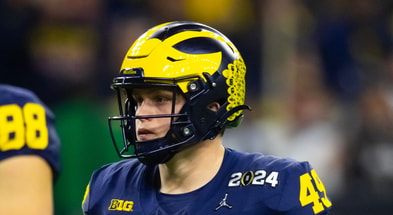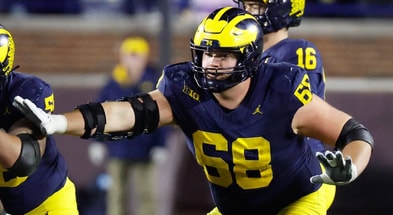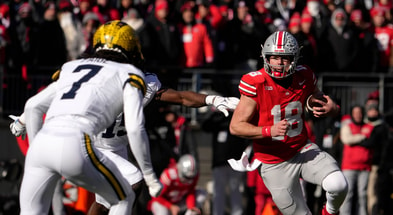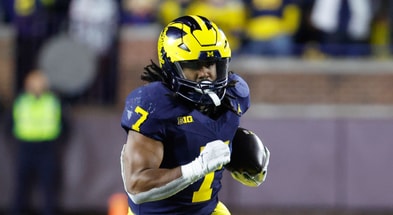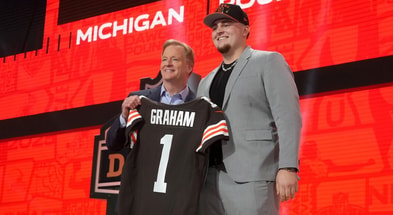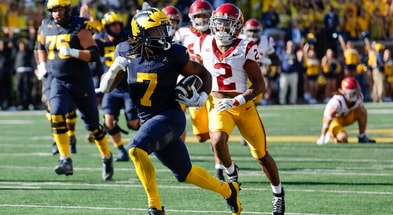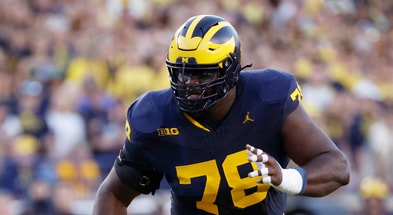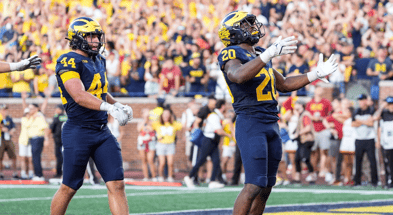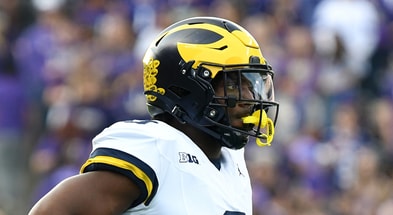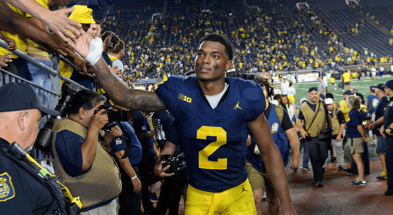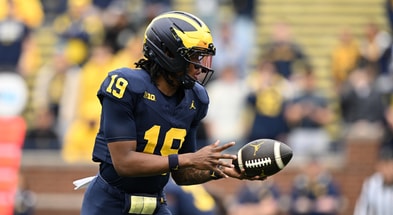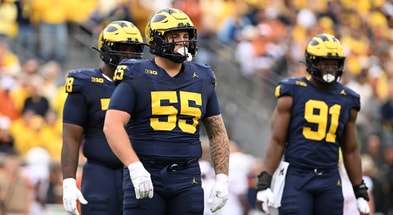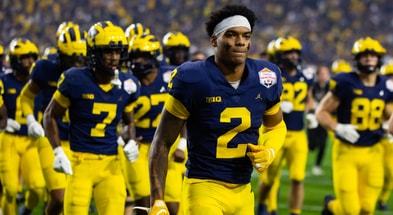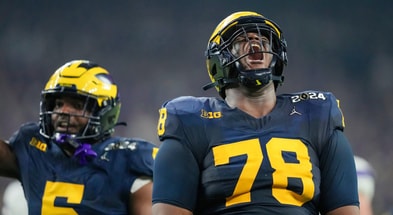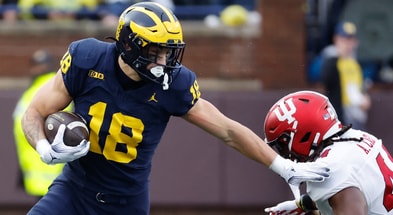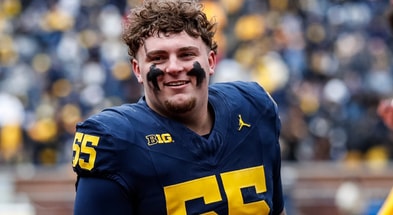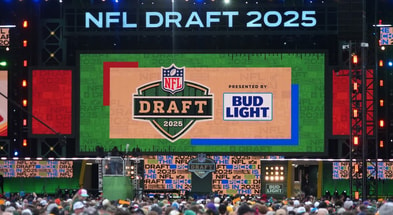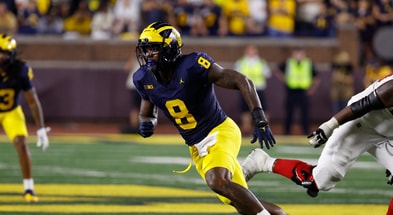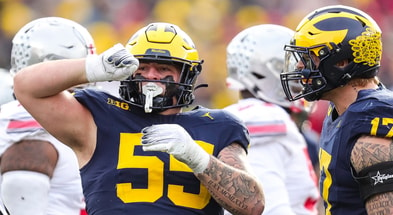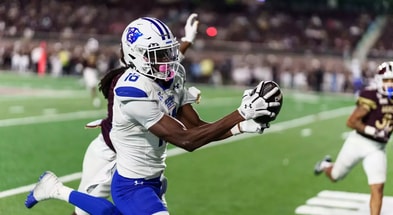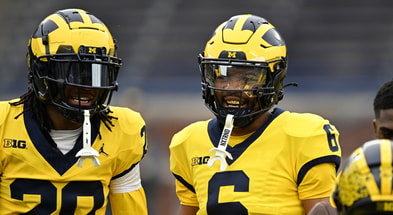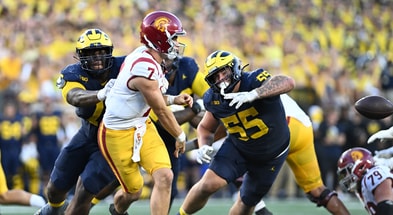NCAA and Jim Harbaugh at an impasse, and frustration. Now what?

We got word earlier this week that the NCAA vs. Jim Harbaugh “burgergate” case would be coming to a head sooner than later, with Harbaugh essentially having to be willing to accept a suspension to resolve it. It appears on the surface, however, that he didn’t meet all the NCAA’s conditions to satisfy the committee on infractions.
RELATED: Jim Harbaugh suspension deal with NCAA falls through, expected to drag into 2024
RELATED: Michigan football, the 3-2-1: Jim Harbaugh and the NCAA – what’s next?
What we’d heard this week was that Harbaugh was reluctantly willing to accept a four-game suspension and put this incident — one in which a recruit showed up on an impromptu visit and was bought a couple cheeseburgers before he left — behind them. “He’s not happy about it” was how it was described to us, but he was willing to take the bullet.
From what we’ve gathered, though, it probably came with a condition on his part — that he wouldn’t admit to “lying” about not remembering the date of the visit. As previously reported, that turned a potential Level II violation into a Level 1, and the NCAA — despite the rampant pay for play happening on its watch and countless, significant violations around the country that have gone unpunished – apparently decided to make an example of Michigan. And that clearly didn’t sit well with Harbaugh … nor should it have.
“Compare us to perfect, and we’re going to come up short in the major areas,” Harbaugh said this spring. “Compare us to any other program, and you’ll see it doesn’t get any better.”
Since then, the NCAA has put a gag order on Harbaugh, his lawyers, and Michigan from discussing the case. Harbaugh made it clear he wanted to — badly — at Big Ten Media Day, but that he couldn’t. “Nothing to be ashamed of,” he insisted, saying he’d talk when he could but adding, “now is not the time.” Meanwhile, the NCAA, probably embarrassed by the backlash (rightfully so) it’s received over the incident, decided it didn’t need to adhere to those restrictions.
“The Michigan infractions case is related to impermissible on and off-campus recruiting during the COVID-19 dead period and impermissible coaching activities — not a cheeseburger,” Derrick Crawford, the NCAA vice president of hearing operations, said. “It is not uncommon for the COI [committee on infractions] to seek clarification on key facts prior to accepting.
“The COI may also reject an NR [negotiated resolution] if it determines that the agreement is not in the best interests of the Association, or the penalties are not reasonable. If the involved parties cannot resolve a case through the negotiated resolution process, it may proceed to a hearing, but the committee believes cooperation is the best avenue to quickly resolve issues.”
Top 10
- 1New
Shilo Sanders
Lands with NFL team
- 2
Picks by Conference
The final tally in NFL Draft
- 3Trending
Mel Kiper
Eviscerates NFL: 'Clueless'
- 4
D.J. Uiagalelei
Signs NFL free agent deal
- 5Hot
Quinn Ewers drafted
Texas QB off the board
Get the On3 Top 10 to your inbox every morning
By clicking "Subscribe to Newsletter", I agree to On3's Privacy Notice, Terms, and use of my personal information described therein.
Crawford, who holds two degrees from Alabama (oh, the irony), seemed to imply Michigan wasn’t cooperating in Harbaugh’s refusal to admit “lying.” And if that’s the case, he’ll probably be waiting a lot longer for an admission and an apology. Harbaugh isn’t the type to admit to lying if he feels he didn’t. So, U-M is now forced to play the long game, though the NCAA has also told ESPN and others Harbaugh’s status to start the season, or any potential suspension has yet to be determined. The case could go to a full hearing of the committee or Michigan could attempt to self-impose penalties.
If that were to happen, sources tell us, Michigan would almost assuredly appeal, meaning a resolution might not come for months, or even years. Others speculated the situation might have escalated because of the NCAA’s embarrassment over the characterization and the pushback it’s received in the last several months. Regardless, the weekend’s ruling didn’t prevent Tom Mars, Harbaugh’s attorney, from voicing his displeasure over the NCAA statement.
So … now, we wait. Those who consider it a “distraction” or who are concerned it will affect either Harbaugh’s or his team’s performance this fall aren’t familiar with the DNA of either. Nobody will give it a thought now that it’s on hold, preparing instead for what should be an elite season. The only ones likely to even bring it up are those in local media who have nothing better to write about, or the national guys with an axe to grind with Harbaugh (though even ESNP’s Paul Finebaum’s on his side here. That’s almost at the point of “all you need to know”).
Now, though, it’s time for football, and a chance for the Michigan program — one most would admit is and has been one of the cleanest in the country for decades — to make its own statement on the field.

